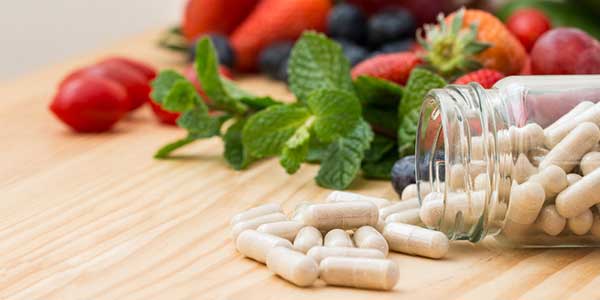
Common Seasonal Supplements
Echinacea
Echinacea is an herb used by native North American healers for centuries. It has shown to fight against the common cold, flu, and respiratory infections by reducing inflammation in the body. In fact, WebMD proposes available research suggests echinacea can reduce the risk of catching a cold by 45 to 58 percent. Though it can be used as an injection or topical cream, commercially available products are often in the forms of pills and tea blends.
Gingko
Gingko is a large tree native to Asia, though has flourished to Europe and the United States. The Gingko tree has gained great attention, showing to improve blood circulation to subsequently slow down Alzheimer's disease. The plant is further implied to treat against depression and chronic disease syndrome and though the seeds have shown to kill against infectious bacteria and fungi, they are also warned to be extremely toxic.
Ginseng
The ginseng root is one of the most popular herbal medicines, showing to enhance the immune system. Other seasonal benefits include an improved mood and boosted endurance with its supplementation.
Milk Thistle
Milk thistle is a flowering herb mostly recognized as a natural treatment for liver problems, along with claims to lower cholesterol and manage diabetes. Its active ingredients, silymarin, has shown to provide anti-inflammatory and antioxidant properties which may be beneficial during the cold and flu season.
St. John's Wort
St. John's wort remedy has been explored for a multitude of health ailments, though most of its attention focuses on its use to treat depression. However, the research backing such a claim is conflicting, as some research suggests the herb may treat mild depression and seasonal affective disorder while others advise its effectiveness is no better than a placebo. St. John's wort is mostly taken in pill or liquid form, although the dried herb may also be produced into a tea.
Turmeric
Though mostly known for its warm, bitter taste in curry dishes, turmeric also displays medicinal use primarily related to its curcumin content. Curcumin, the chemical providing the vibrant color of turmeric, is suggested to reduce inflammation and combat against infection. Find out more on turmeric and dosing recommendations here.
Vitamins A and C. Both vitamins A and C have a renowned role in strengthening the immune system and fighting against infection. They are also recognized for their antioxidant properties, protecting the body against free radicals and damage.
Vitamin D
Also known as the sunshine vitamin, vitamin D is especially important during the winter season when you are more apt to stay warm inside. Along with supporting bone health, vitamin D helps build a strong immune system by fighting off bacteria and viruses. Studies link vitamin D deficiency with an increased risk of flu and depression, with some evidence suggesting taking a vitamin D supplement can improve or prevent depression.
Zinc
Zinc is a mineral that plays a vital role in the development and function of numerous body and organs, including muscles, bones, kidneys, pancreas, retina, teeth, hair, and red blood and immune cells. That being said, being deficient in zinc may compromise immune function.
Seasonal Supplementation Considerations
If contemplating supplementation, consider the following considerations and tips:
Do Your Research
Just like being aware of what foods you are putting into your body, do your research to know what supplements you are taking, too. Some products are frequently mislabeled and may contain contaminants and fillers, or potentially not even included what's intended and identified to be concealed...
Reconsider Megadoses
More is not always better when it comes to supplements. While some megadoses have proven to be beneficial, particularly associated to deficiencies, conflicting research suggests you may be doing more harm than good!
Stay Weary
If it sounds good to be true, it more than likely is! Stay weary of claims such as "fat-burners" and "metabolic-enhancers," as they may be potentially dangerous, ineffective, and a waste of your money. Ultimately, a nutritious diet, regular exercise, stress management, and sleep are key if trying to shed that so-called "winter weight" or optimize immune and overall health.
Consult with A Healthcare Professional
Consulting with a healthcare professional safeguards any associated risks of supplementation. It is also important to provide a comprehensive list of any health diagnoses or medications to reduce any harmful interactions and side effects.







